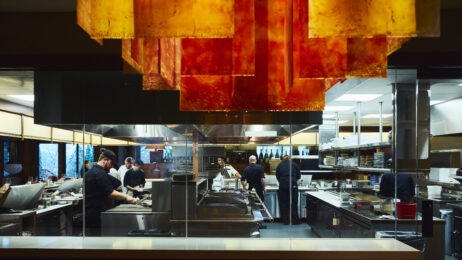Strike votes by hospitality workers in Las Vegas and, now, Chicago could be harbingers of more labor actions in response to loss of job security caused by automation, according to labor experts.
An August 31 Deadline
The most recent threat, by Unite Here Local 1 in Chicago, could impact 30 hotels. The union’s members voted August 15 to walk off the job at month’s end if a new contract deal isn’t reached. Negotiating points include pay, pension reform, year-round health insurance, staffing levels and job security.
A Hilton Hotels & Resorts spokesperson responded to the vote by clarifying that no strike or picketing is currently happening and noting it is unclear whether such activity might occur. “Although employees in the city did vote to authorize a strike, this is a common tactic in the course of contract negotiations and does not mean that employees will actually strike,” the spokesperson noted. She went on to say, “If they do, however, we have contingency plans in place to ensure that any strike would have minimal impact on hotel operations.”
In May, culinary and bartenders’ unions for casinos in Las Vegas voted to strike over similar issues, but reached agreements with MGM Resorts International and Caesars Entertainment hours before their previous contracts expired.
Security Issues
The Las Vegas call for a strike was an indicator, according to Randy Pullen, CEO of hospitality human resources consulting company Wagewatch. Labor in the desert city is more powerful than elsewhere in the country, and unions are trying to protect members from trends that have been building over the last few years—including job security and worker safety.
“There is a lot of concern about automation of jobs,” Pullen said. Reservations and back-of-the-house have already largely been replaced by web-based solutions. Now, arriving guests are checking in at kiosks or with their phones and bypassing the front desk. He saw housekeeping as the next target for hotel automation. “Some studies show that as many as half of hospitality jobs may be lost. I think it will be closer to 30 percent,” he said.
Reduced staffing also raises safety concerns, as lobbies are manned by a single employee and there is less supervision of comings and goings in guest rooms. The #MeToo movement has also brought forth fears from housekeepers of sexual harassment from guests. And if housekeepers must manage twice as many rooms, that could pose logistical challenges even with the aid of automated equipment—how do they manage a cart with supplies for 24 rooms?
#ThursdayThoughts #ThursdayMotivation #1u @UniteHerelocal1 pic.twitter.com/DPWum2JXZ6
— Lou Weeks (@LouisMWeeks) August 23, 2018
Salary Trends
Minimum wage increases across the country are already putting pressure on hotel companies. Labor is one of their largest budget categories, at about 38 percent of expenses. While hotel revenues are increasing, profits are not going up as quickly as expected. The industry as a whole saw 4 percent increases in wages last year, according to Pullen.
Pullen sees wages and job security as competing priorities for labor. “The problem is that the demand for higher wages is driving the push to automate faster,” he said.
Pullen echoed Nobel Prize-winning economist Paul Krugman in pointing out that the steel industry proved that the advance of technology cannot be stopped by any union. He theorized that states could pass legislation making the replacing of a person with a robot illegal. “I don’t think that will go very far, if only because millennials already expect to be able to do everything on their phone,” he said.
Pullen also sees courts and regulatory agencies, such as the National Labor Relations Board, as getting more conservative.
One upside, according to Pullen, is that the hospitality industry as a whole has been strong over the last few years and is projected to add almost 2 percent to inventory in the coming year. That could be an outlet for employment no longer available at existing hotels.
Pullen does not view consolidation in the industry as harmful to rank-and-file employees—just as many hotels need to be staffed. However, it could reduce the number of executives needed at the corporate level.
“There is not a CEO union to protect them,” he said with intended irony.




